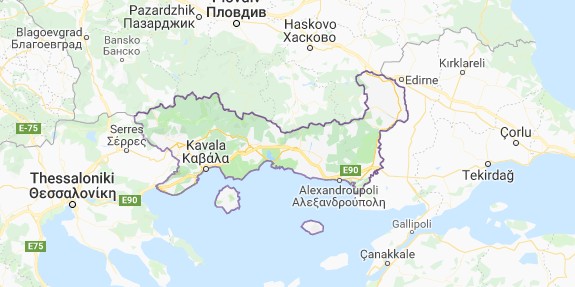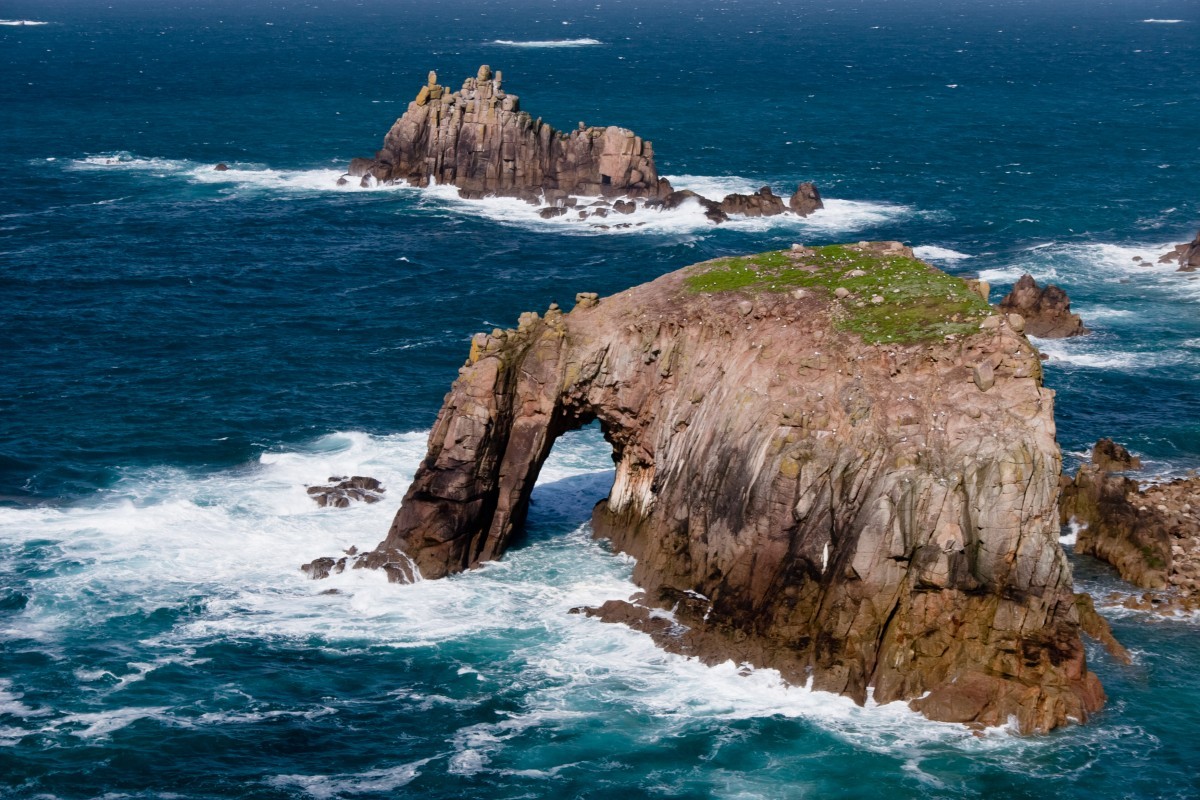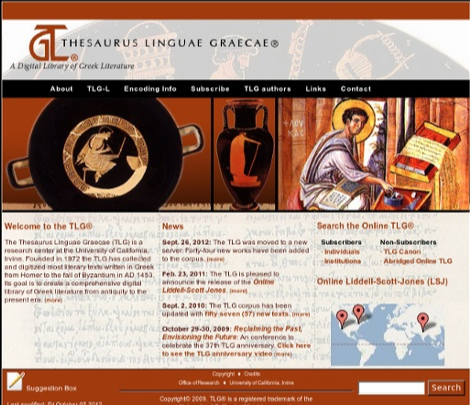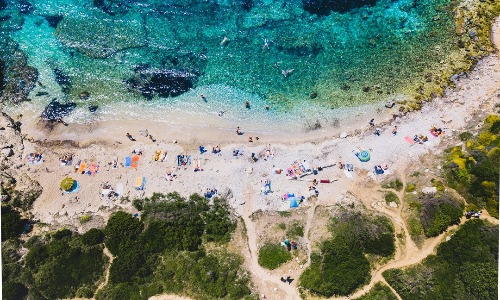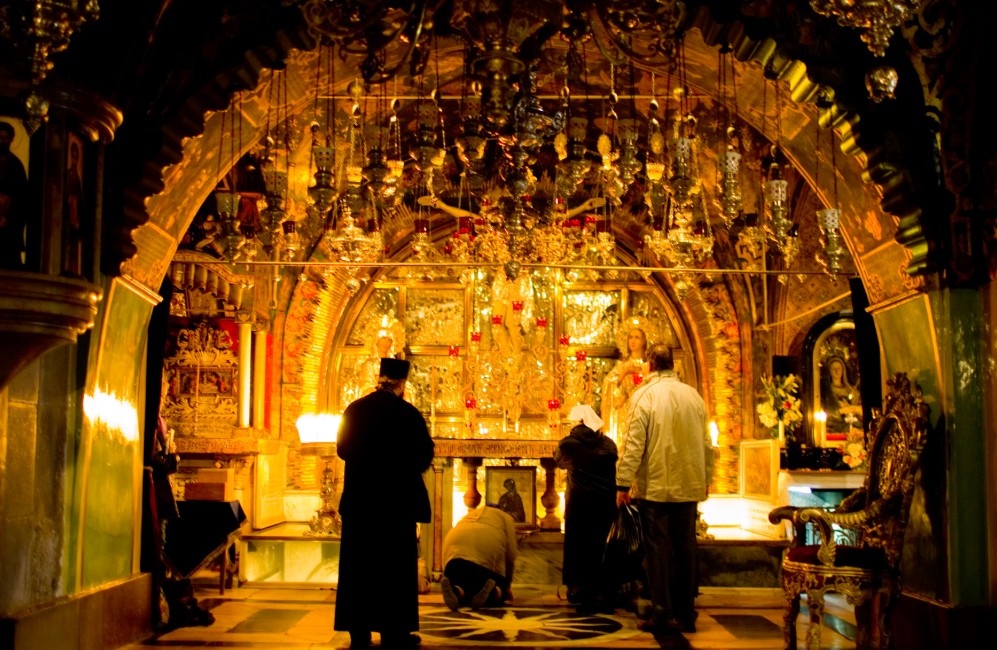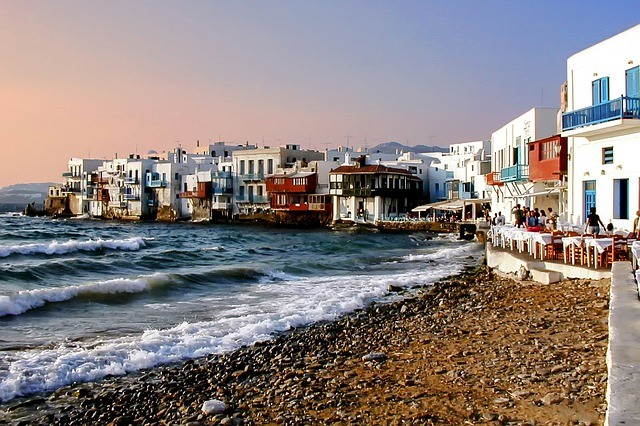Ares (god of war)

In one legend, he is the son of Zeus and Hera, in another he, along with his twin sister Eris he was born when his mother Hera touched a flower. Ares is always depicted wearing a helmet and ready to go into battle. He, amongst all the Gods was the least liked, even his parents disliked him due to his venomous nature, even though he was the god of war, he was also said to be a coward. Ares was just as enthusiastic about women as he was of war. His affair with Aphrodite resulted in the birth of four of his many children, Eros, Harmony, Deimus and Phobus. Deimus (terror) and Phobus (fear) where twins and as their names suggest they took after their father and accompanied into battle.
When Halirrhothios son of Poseidon tried to rape one of his many his daughters, Ares killed him, the other gods on Olympus held court. This was the first time the gods on Olympus where recognised as a supreme court. The hill on which this court was held was named Areopagus, (the hill of Ares) after Ares was cleared of the murder of the young boy. The word Areopagus is used to define the modern day Greek Supreme Court.
Hephaestus (god of fire and art)
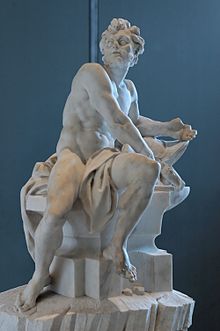
Hephaestus, the god of fire, especially the blacksmith’s fire, was the patron of metalworkers. Hephaestus is said to be the son of Zeus and Hera although Zeus was not his biological father. Hephaestus was parthenogenetic, meaning conceived without male fertilisation. Hephaestus was born weak and crippled, and according to one myth, his mother Hera unhappy at giving birth to an ugly and imperfect son threw him off Mount Olympus. He landed in the sea where the nymphs rescued him and took him to the island of Lemnos. Another version is that Hephaestus intervened in an argument between his mother and father, Zeus angry with his son took side with his wife, threw Hephaestus of the mountain where he eventually landed on the island of Lemnos.
Hephaestus, seeking revenge for this harsh treatment used his skills in metalworking, into making a throne, not just any old throne but one that had magical properties. He sent the throne to Mount Olympus, as a gift for his mother, she was pleased with the gift and took her seat upon it, and once she sat on it, the magical properties that Hephaestus had worked into it entrapped his mother. Zeus and the other gods repeatedly pleaded with Hephaestus to come to Olympus and release his mother, and just as repeatedly, he refused. The god of wine, Dionysus who at that time was one of the lesser gods, was sent to Lemnos plead with him, under the negotiations a large amount of wine was drunk by Hephaestus, thoughtfully provided by Dionysus. Hephaestus returned to Olympus slumped over the back of a mule, intoxicated. More negotiations followed, and Hera was released after Aphrodite had been promised to Hephaestus as his bride. Dionysus was rewarded for his participation in the affair, he became one of the twelve gods that ruled on Olympus.
Hephaestus, suspecting that his wife was having affairs with other men, created a net, a net that no-one could escape from. His suspicions were correct, he caught Aphrodite and Ares in bed together, and he threw the net over them and took them to stand trial in front of the other gods. Hephaestus wanted them punished for committing the act of adultery against him. The other gods (all who had committed adultery before) laughed to see the lovers in such a predicament and told Hephaestus to release them. Hephaestus, despite his limp and unattractiveness was often to be found in the company of beautiful women other than his wife.
Hephaestus, with help from the Cyclopes, who assisted him, created many of the tools and weapons used by the other gods. He made thunderbolts for Zeus, a shield for Athena and the chariot the Sun god Helios rode across the heavens in. Aided by the other gods he created the first women, after Zeus who had plotted against Prometheus because he and his race of mortals had only included one gender, which was male. He women was named Pandora, and in here box she had all the evils of the world.
The Temple of Hephaestus and Athena (the Hephaesteum, also known as the Theseum) still stands. It was built in 449 BCE and stands on a hill close to the Agora at the foot of the Acropolis.
Hermes (god of commerce and messenger of the gods)

Hermes was the messenger of the gods and guide of dead souls to the Underworld. Hermes is also the god of shepherds, literature, athletics and thieves, and known for his shrewd and guile. According to myth, Hermes was born in a cave on Mount Cyllene in Arcadia after a nightly visit by Zeus to the bed of Maia, one of the daughters of Atlas. Hermes was born the next morning. He was a very highly developed child, and when his mother fell asleep after giving birth to him, he managed to run away to the region of Thessaly. Here Apollo grazed his cattle, Hermes stole some of the cows and hid them in a cave, and it was here that Hermes brought the gift of fire to the world. He rubbed two twigs together to create fire so he could roast two of the cows. In addition, here in the cave Hermes made a lyre from the innards and shell of a tortoise. This done he returned to his mother and fell asleep besides her.
When Apollo discovered who had stolen his cattle he went to Maia to complain, she listened in disbelief and said Hermes had just been born and he still lay asleep in his crib. Zeus who knew what had taken place told Hermes to return the cattle to Apollo, Hermes played enchanting music on his lyre, and said to Apollo he could have the lyre as a peace offering in exchange for the cattle. Apollo accepted and Zeus who was impressed with Hermes gave him his staff as a symbol as his new status as messenger of the gods. Besides being the messenger of the gods, it was also his duty to guide the souls of the dead to the underworld, he was also a patron of sport, and he invented running and boxing. Statues of him stood in every gymnasium in Greece.
Like many of the gods, Hermes had several romances, and according to myths, he was the father of Pan, Abderus and Hermaphroditus. Pan, the half man half goat, believed to be the son of Hermes and Dryope, the daughter of king Dryops. Pan terrified his mother so much she ran away at the sight of him. Hermes took Pan to Mount Olympus were the gods took a likening to him and made him the patron of the woodlands and shepherds and their flocks. Hermes also was helpful to mere mortals, He assisted the heroes Odysseus and Perseus in their quests. Hermes persuaded the nymph Calypso to release Odysseus, whom she had captured after being shipwrecked on the island of Ogygia. Hermes also saved Odysseus and his men from being transformed into pigs by the goddess and sorceress Circe.
Dionysus (god of wine)

Dionysus was the son of Zeus and the mortal woman Semele who was killed accidentally by Zeus with one of his lightning bolts.
Dionysus was rescued from Semele’s womb and implanted into Zeus’ thigh, from where he was eventually born.
To protect the infant god, Hermes changed Dionysus into a baby goat and took him to a group of nymphs to be raised. While living in the mountains with the nymphs, Dionysus invented the process of growing grapes and making wine.
Hera continued to persecute Dionysus when he became an adult, and drove him mad so he wandered aimlessly around the mortal world, until Rhea cured him of this madness.
Dionysus was renowned for his love of wild parties, loud music and frenzied dancing. He built up a large group of followers whilst wandering the earth, called maenads, or “mad women.”
Those who welcomed him as they met him on his travels were met with sweet wine to cheer and comfort them. But those who drove Dionysus away were punished, as his wine was also capable of causing a frenzy that made people commit terrible crimes.
Eventually Dionysus came to Olympia. The fact that his mother Semele was mortal meant that some of the gods were unhappy for Dionysus to be seated with them in Olympus. But Hestia, goddess of the hearth and one of the twelve original Olympians, voluntarily gave up her seat to him, and went to tend to the sacred fire on Mount Olympus.
Dionysus married Ariadne, a princess who had been a moon goddess when the Titans ruled, and together they had several children. Dionysus was one of the few Greek gods who were faithful to their wives.
It was Dionysus who granted Midas the power to turn whatever he touched into gold, and then happily took the power back when it proved inconvenient.
Lesser gods on Mount Olympus
Hestia (goddess of family peace)
Hestia is the eldest sister of Zeus. She swore on her brother’s life to remain a virgin even though Apollo and Poseidon courted her. Hestia was the kindest of all the Olympians. She had no throne on Mount Olympus she renounced this when Dionysus was elevated to one of the ruling Olympians. Her task was to keep the sacred fires in the halls alight. Her alters are every fire hearth in the world. Zeus ruled that she could be worshipped in any temple no matter whom the temple was originally dedicated to. The Romans adopted as they did with the other gods and renamed her Vesta and erected a temple in her honour in Rome.
Hades (god of the underworld) Hades (Roman name Pluto) was the lord of the dead and ruler of the underworld, which was named Hades in his honour. His plants are the cypress and narcissus, and his symbol the sceptre.
Hades is the son of Cronus and Rhea and the brother of Zeus and Poseidon. He was an unpopular god, both with gods themselves, and with men. Men avoided saying his name, and when sacrifices were made to him the animals had to be black.
He is known as the god of wealth as well as death, as by being in control of the underworld Hades possessed the riches of the earth. ———– Hades ruled the underworld alone until he fell in love with Persephone, seized her and took her back to live in the underworld with him. However, Zeus demanded that he release Persephone so she could return to live with her mother Demeter.
Hades though, ensured that Persephone could never fully leave him, by making her eat a pomegranate seed before she was released. Once Persephone had eaten in the underworld she was bound to return there every year. Hades is the lord of the dead and ruler of the nether world, which is referred to as the domain of Hades or, by transference, as Hades alone. He is the son of Cronus and Rhea. When the three sons of Cronus divided the world among each other, Hades was given the underworld, while his brothers Zeus and Poseidon took the upperworld and the sea respectively. For a while Hades ruled the underworld together with Persephone, whom he had abducted from the upperworld, but Zeus ordered him to release Persephone back into the care of her mother Demeter. However, before she left he gave her a pomegranate and when she ate of it, it bound her to the underworld forever.
Hades sits on a throne made of ebony, and carries a scepter. He also has a helmet, given to him by the Cyclopes, which can make him invisible. Hades rules the dead, assisted by various (demonic) helpers, such as Thanatos and Hypnos, the ferryman Charon, and the hound Cerberus. Many heroes from Greek mythology have descended into the underworld, either to question the shades or trying to free them. Although Hades does not allow his subjects to leave his domain, on several occasions he has granted permission, such as when Orpheus requested the return of his beloved Eurydice.
Hades possesses the riches of the earth, and is thus referred to as ‘the Rich One’. Possibly also because — as Sophocles writes — ‘the gloomy Hades enriches himself with our sighs and our tears’. Of all the gods, Hades is the one who is liked the least and even the gods themselves have an aversion of him. People avoided speaking his name lest they attracted his unwanted attention. With their faces averted they sacrificed black sheep, whose blood they let drip into pits, and when they prayed to him, they would bang their hands on the ground. The narcissus and the cypress are sacred to him.
Asclepius (Roman name Aesculapius) was a Greek hero who later became the Greek god of medicine and healing. He was the son of Apollo and the mortal woman Coronis. His symbol was the physician’s staff, with a snake coiled round it, his animal was the snake, and his bird was the cock.
Artemis, Apollo’s twin sister killed Corona before Asclepius was born because she was unfaithful to Apollo. Coronis was burnt on a funeral pyre, but at the last second, Apollo saved his unborn son and asked the Centaur Chiron to watch over him. Chiron taught Asclepius the art of medicine and healing.
He married Epione, and had two sons (Machaon and Podalirius), and a daughter – Hygeia, the goddess who personified health.
Asclepius became renowned for his great medical knowledge. However he took things a step too far when he decided to not only heal the sick, but to also raise the dead.
Zeus sent down a thunderbolt to kill him because he felt Asclepius had interfered with the natural order of things. But after his death, Zeus acknowledged the good he had brought mankind and made him into a god.
Eris (Roman name Discordia) is the Greek goddess of discord and strife. She was her brother Ares’ constant companion.
She was responsible for starting the Trojan War, because she made the mortal Paris, a Trojan, choose whether Hera, Athena or Aphrodite was most beautiful at the wedding of Peleus and Thetis. He chose Aphrodite because as a bribe she offered him the most beautiful woman in the world – Helen.
However Helen was already married to the Greek ruler Menelaus so Paris had to abduct her. This incident started the Trojan War, which lasted for ten years.
Heracles (Roman name Hercules) is the son of the god Zeus and the mortal woman Alcmene. He lived a mortal life, before being made into a god after his death.
His gift was enormous strength; he strangled two serpents in his cradle, and killed a lion before even reaching manhood.
Heracles’ main enemy was Zeus’ wife, Hera. She eventually drove him mad, during which time he killed his own children and his brother’s. He was so grieved upon recovery that he exiled himself and consulted the oracle of Apollo. The oracle told him to perform twelve labours, which he completed successfully.
Heracles eventually met his death after being poisoned from a garment his wife Deianira sent him that was soaked in the centaur Nessus’ blood.
On his death he was taken to Olympus and given the goddess Hebe as his wife. They lived together in a palace on Olympus.
Helios (Roman name Sol) was the Sun god in Greek mythology. He was the son of two Titans – Theia and Hyperion.
As the god of the Sun, Helios was thought to ride a chariot drawn by horses through the sky, bringing light to the earth. His symbols were the whip and the globe, and his sacred animals were the cock and the eagle.
Helios is often seen as a heavenly spy, from whom not much can be kept secret. In the Odyssey Helios is the first to find out about the affair between Aphrodite and Ares. He also helps Demeter in her search for her daughter Persephone.
With his wife Perse (an Oceanis or sea nymph), he fathered many children, including Circe, Pasiphae and Aeetes. He also had a number of affairs, one of which resulted in Helios fathering a son Phaeton. Helios allowed Phaeton to ride his chariot across the sky, but Phaeton lost control of the horses and died.
Eros (Roman name Cupid) was the god of love in Greek mythology. His symbol was the bow.
There are many differing accounts of Eros’ birth, but the most popular is that he was the son of Aphrodite and Ares, the god of war.
He was Aphrodite’s constant companion and together they inspired desire in both gods and mortals. Each spring, he would leave Olympus with her and they would wander the earth with Imerus and Pothus (who symbolised erotic desire) spreading love and fertility.
Eros was a popular subject for both poets and artists. He was often represented as a young winged youth, spreading the pleasure, and the pain, of love with his bow and arrow.

